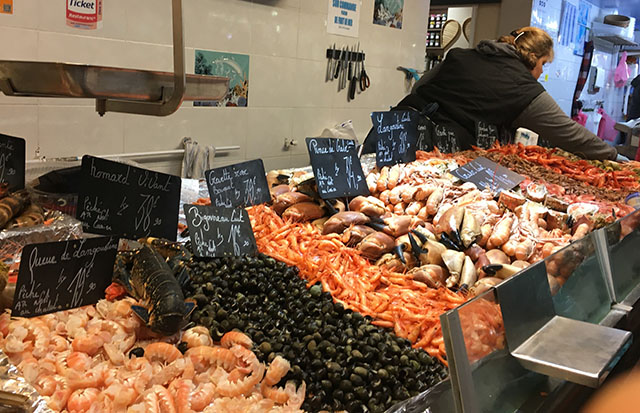Plus de pain ? Plus de fromage ? Plus de gateau ?…” We have witnessed on several occasions our foreign guests get a little confused when, invited to a dinner by a French family, they are asked such questions. “More bread or no more bread? More cheese or no more cheese? More cake or no more cake?… What was the question, exactly?”
Very few short French words are as confusing as plus, because it can be either a superlative adjective or an adverb and which, indeed, can mean either “more” or “no more”, depending on the context, its position in a sentence, and the way it is pronounced. Let’s see, through some examples, how plus is pronounced in each case, because the pronunciation of the word makes all the difference.
1st Part: Cases when plus is pronounced “pluS“
When plus is an adverb meaning “more“, very often used in a comparison, it is always pronounced “pluS“. Here is how it is used:
1) Before a noun:
Examples:
– J’ai plus de chance que toi au loto = I have more luck than you in the lotto.
– Il a plus d’amis que quand il ne travaillait pas. = He has more friends than when he didn’t work.
– Louis a plus de plaisir à parler français qu’espagnol. = Louis has more pleasure speaking French than Spanish.
2) After a verb and directly followed by the pronoun que
Examples:
– Mon fils mange plus que ma fille. = My son eats more than my daughter.
– La fourmi travaille plus que la cigale. = The ant works more than the cicada.
– Le tennis nous plaît plus que le foot. = We like tennis more than soccer.
3) When it is accompanied by en – en plus – (meaning “more“, “moreover“, etc.):
Examples:
– J’ai des heures en plus à faire. = I have overtime work to do.
– Je n’ai pas le temps de déjeuner ; en plus, je dois partir plus tôt. = I don’t have time for lunch; moreover, I have to leave early.
– Je suis fatigué, et en plus, j’ai faim. = I am tired, and moreover, I am hungry.




 Receive our French Learning e-Magazine for FREE!
Receive our French Learning e-Magazine for FREE!